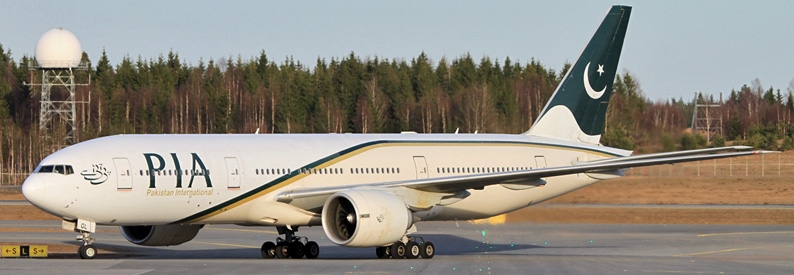EU retains ban on Pakistani carriers despite ICAO audit

In a blow for PIA – Pakistan International Airlines (PK, Islamabad Quaid-e-Azam Int’l), the European Union Aviation Safety Agency (EASA) has – for now – refused to set aside a ban on flights linked to a scandal over fake pilot licenses in 2020 that ruined the South Asian country’s air safety reputation.
In a letter to PIA Chief Executive Officer Arshad Malik, EASA Executive Director Patrick Ky acknowledged the International Civil Aviation Organisation (ICAO) recently lifted its Significant Safety Concern (SSC) warning against Pakistan’s personnel licensing following an on-site audit between November 29 and December 10, 2021, conducted under its Universal Safety Oversight Audit Programme (USOAP). He also acknowledged that this was “an important step towards a potential lifting of the suspension of your Third Country Operators (TCO) authorisation”.
However, he pointed out that – even if Pakistan is not listed on the EU Air Safety List (ASL) anymore – formal consultations are continuing between the Pakistan Civil Aviation Authority (PCAA), European Union commissions, and EASA under the remit of EU Air Safety List (ASL) regulations. “These discussions revealed the need to address the overall oversight capacity of PCAA.”
“EU commissions will continue to engage with PCAA and monitor the further measures adopted and actions taken to address the situation in Pakistan, including through the outcome of the planned ICAO USOAP audit, as well as through a [European] Union on-site assessment visit to Pakistan.”
He said EASA itself would also conduct an audit of the operator prior to lifting the suspension.
“EASA will have to evaluate the latest USOAP audit report in its entirety to determine the robustness of the certification and oversight capacity of [the] PCAA in general and beyond the shortcomings that led to the SSC.”
He pointed out that EASA on-site inspections in Pakistan were heavily dependent on COVID-19 developments.
The scandal in 2020 revolved around the revelations that 150 out of its 426 pilots in Pakistan at the time held fake licenses.
